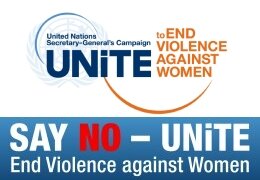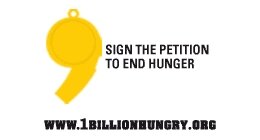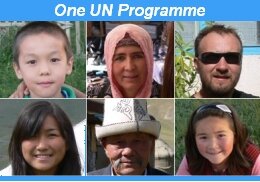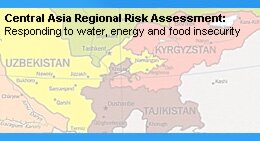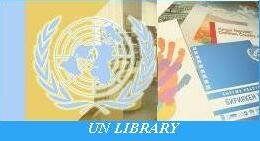| Protecting the health and wellbeing of the future generation: a Law on Breastfeeding and Marketing of Milk Substitutes came into force in Kyrgyzstan. |
|
|
| Categories: (Other Documents | Document Database | UN Agencies | UNICEF) |
|
In the middle of March 2009 a Law on Breastfeeding and Marketing of Milk Substitutes came into force in Kyrgyzstan. The Law, which was ratified by Parliament in October and promote by the President in December 2008, calls for support for initiatives to promote and protect breastfeeding and at the same time limits advertising and promotion of milk substitutes in the country. According to specialists, four and a half minutes is enough time to inform a woman about the benefits of breastfeeding and to teach her to hold her child correctly to the breast. UNICEF and WHO recommend exclusive breastfeeding for a full six months meaning only breast milk is given and no other food or liquid. Nevertheless, only half of infants are exclusively breastfed for the first three months of their lives – all the rest are given formula feed. And by five months of age, already almost 96% of children are on artificial food.“This is the result of aggressive advertising and promotion activities by companies producing formula feed in Kyrgyzstan contravening the International Code on Marketing of Breastmilk Substitutes,” says Larisa Toropova, expert on breastfeeding in the Ministry of Health. “My milk was ‘rejected’ immediately after birth by the obstetrician,” says Bishkek resident Natalya P, who became a victim of advertising against breastfeeding. “He just glanced at my expressed milk and proclaimed, without doing any analysis, “your milk is ‘empty’ – it doesn’t contain vitamins and mineral substances and is completely fat-free – like water. If you want your newborn to put on weight well, use a formula.” As a result, young mothers are convinced that they have “bad milk” and thus buy formula to feed their babies. Everyone wants their children to be healthy, but the companies use these wishes to promote their products. “These doctors receive presents from various baby food producing firms,” says Dinara Moldosheva, a member of the Kyrgyz Parliament. “The producers organise events to win over doctors, and send them abroad to study. These practices are in contravention with the International Code on Marketing of Breastmilk Substitutes which all these companies have already agreed to follow. The new Law on Breastfeeding and Marketing of Milk Substitutes prohibits such practices”. Today in Kyrgyzstan there are breast milk substitute products produced by 21 companies from 15 countries. In the middle of 2008, specialists from the Centre for Health Development of the Kyrgyz Republic, with the support of UNICEF and the World Health Organisation, carried out research in Bishkek, Osh and Talas to analyse of the existing system of sale, marketing and advertising of baby formula in the Kyrgyz Republic. They found many practices in contravention of the new law. Hopes for a change in the situation appeared in December 2007, when a new Parliament was elected with 24 female parliamentarians. It should be noted the previous parliament had been 100 per cent male. With the arrival on the legislative scene of active women, the interest of the parliament in social issues was noticeably strengthened, and a range of draft laws were resurrected, including the Law on Breastfeeding and Marketing of Milk Substitutes “Virtually from the beginning of the parliamentary session we began to lobby for this draft law, as this is a question of protecting the health and wellbeing of the future generation,” said Dinara Moldosheva, herself the breast feeding mother of a two and a half year old child. In order to facilitate the passing of the draft law, UNICEF supported a group of parliamentarians to carry out public parliamentary hearings in the regions and Bishkek, and also “armed” the group of deputies with important figures about the benefit of breastfeeding and the consequences of consumption of artificial formula for the health and development of children. “It would seem odd that a law is needed to support the practice of breastfeeding if it is so widely known that breast milk is the healthiest way of feeding,” says Professor Mamyrbaeva, a nutrition specialist. Nevertheless, supporters of breastfeeding over a number of years have been struggling to ensure that laws in the country strictly regulate the distribution and advertising of artificial formulas, because producer companies everywhere have violated the provisions of the International Code, including giving false advice which was given to young mothers by their own doctors. “We won’t let you work in maternity houses!” said breastfeeding specialists, addressing Nestle and other producer companies. “Let the woman give birth and feed her baby naturally. If she can’t do so for whatever reason, she can find you herself.” “The Law doesn’t forbid the sale of formula baby feed,” says Dinara Moldosheva. “It only puts limits on marketing, and free distribution in children’s hospitals, maternity hospitals and other institutions – all practices which actively discourage women from breastfeeding. In the near future, Bishkek will host a sub-regional seminar on monitoring the International Code of Marketing of Breastmilk Substitutes, in which specialists from five Central Asian states will take part, as well as lawyers from the International Baby Food Action Network and representatives of UNICEF New York. The seminar programme will include exchange of information collected in the countries of realization of laws on breastfeeding and a search for effective ways to monitor the realization of these laws. The Government of Kyrgyzstan, the Parliament and the Ministry of Health are committed to enforcing the new law and to protecting exclusive breastfeeding for children up to six months of age.
|














